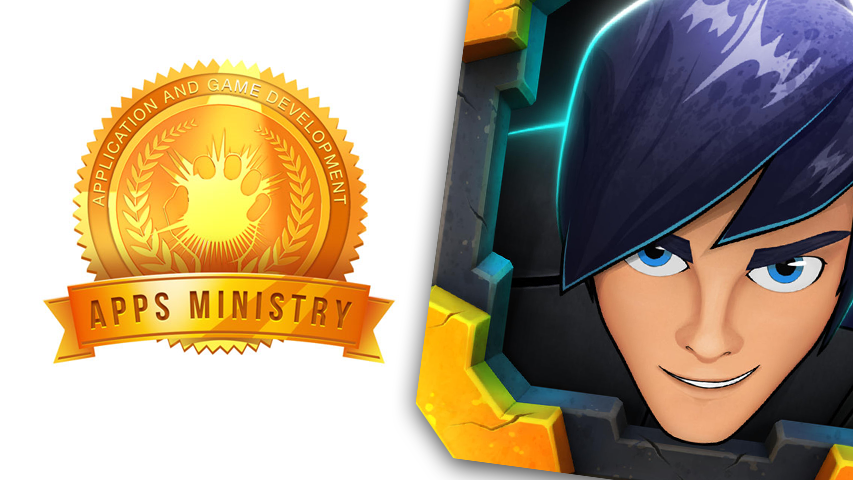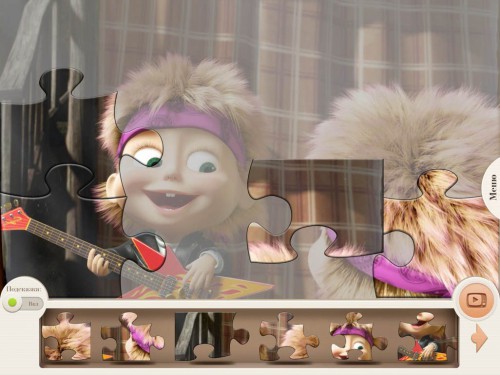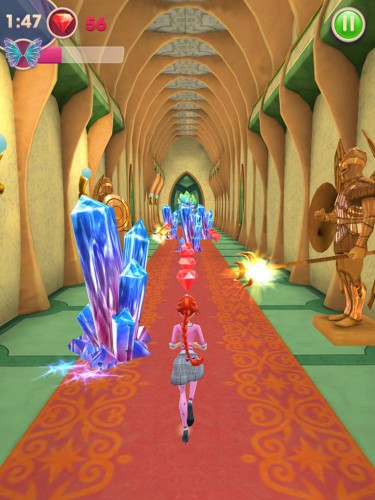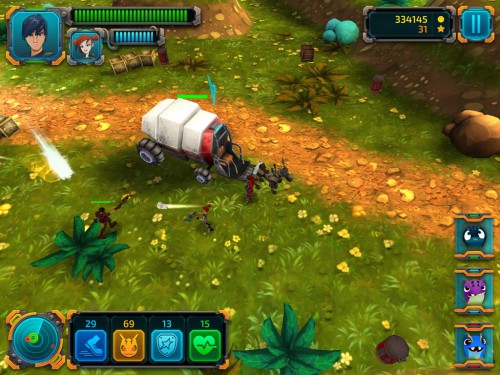Is it difficult to get a license to develop a mobile game, and how ethical is the presence of IAP in children’s games – we talked about this and not only with Apps Ministry.

To the questions App2Top.ru The company’s CEO Vadim Shilov was responsible.
Hi! Tell us a little about the history of Apps Ministry. How did the company come about?

Vadim Shilov
Hello. Apps Ministry was founded as a startup of the Neoline group of mobile content providers in 2010. At that time, it became obvious to us that the European business model of the mobile VAS (value-added services) market is a dead end, it will decline in the coming years due to its extreme toxicity for most users. We are talking about traditional paid SMS and voice services.
At the same time, Apple and Google created their own eco—environments in the USA – the App Store and Google Play. We believed in these open application stores created by leading manufacturers of hardware and operating systems. And they not only believed, but also realized that if we want to exist in 10 and 20 years, then we need to enter these stores. It immediately became obvious that it was both expensive and risky, and that it was not worth waiting for an easy walk.
The first thing we did was to adopt our existing experience as a content provider. We knew that the easiest way to reach the user is through recognizable brands. It is unrealistic to create your own brand from scratch — we had neither the means nor the experience for this. However, as a content provider, we had a circle of licensee partners with whom it was relatively easy for us to negotiate a license for recognizable brands.
Why did you take up the development of games specifically for children?
It was almost a matter of chance. In search of recognizable brands, we immediately paid attention to “Masha and the Bear“. In addition, at that time we already had an established relationship with the copyright holder of this cartoon — the Monolith company (at that time they were the exclusive copyright holder of Masha and the Bear). That’s how it all started — having made the first financially successful project on the basis of “Masha and the Bear”, we decided to develop the children’s theme further. In addition, it has become easier to negotiate with other children’s licensees with such a project.
“Masha and the Bear”
Many people think that the brand itself worked, but we were just lucky. But few people know that we were not the first to start selling Masha and the Bear in the App Store. Before us, a Nizhny Novgorod developer sold this cartoon for about 2 years. However, they have not managed to create a tangible monetary gain for the copyright holder on this project. We existed in parallel with them in the App Store for about six months, after which our competitor was denied rights due to its commercial inefficiency.
What do mobile children’s free-to-play titles earn, children can’t pay for IAP in them?
Payments in the App Store and Google Play differ little from the same payments in the Detsky Mir store. Children can’t buy toys for themselves, but toys are somehow sold, and even in huge quantities. And how does this happen? [smiles]
In addition to in—game purchases, there is another way to monetize applications – advertising. Users watch ads, the advertiser pays for the views / clicks of the advertising network, the advertising network pays the developer / publisher of the application. It is worth noting that we work only with international advertising networks that comply with the requirements of the American legislative act on the protection of children in the online space COPPA — Children’s Online Privacy Protection Act. In addition, all these networks have age ratings of advertising.
In general, the presence of IAP in children’s games – how ethical is it?
A strange question. How ethical is it to sell toys to children for money? How ethical is it to sell tickets to children’s cartoons, for example, “Disney” in cinemas? Let’s make everything free. Only then one question — who will make toys, who will create children’s digital content?
In Russia, and in other countries of the ex-USSR, there is a strikingly massive pirate psychology. People can easily steal someone else’s work, for example, the same movie, and at the same time sincerely consider themselves absolutely law-abiding and at the same time blame the legitimate copyright holders and those who distribute licensed content for all mortal sins. Simply put, in our mass consciousness, stealing is normal, but selling the results of your work (and, God, also to children!) is evil.
Let’s get back to the question of brands. In the West, the practice of developing games “based on motives” is widespread, unlike in Russia. How difficult is it today to get the rights to use a particular brand to companies from the CIS? What is needed for this?
This is a complex and difficult job. First, you need to know what rights to which brands you need to get. Many people simply do not understand this. I am familiar with quite large Russian developers and publishers who cannot assess the potential of the brand and are trying to negotiate with those with whom it is not even worth starting a conversation. Secondly, you need to have people who are able to negotiate, who have experience in the licensing business. Like any other, a licensed business is a kind of caste business. If they don’t know you there, they probably won’t want to work with you. Thirdly, you need a portfolio. Licensors look at who you work with. Even if you have established yourself as a mobile publisher, you have successful projects, money, people, but you do not work with any of the world’s famous licensors, it is not a fact that they will want to talk to you on the other side of the ocean.
Winx Bloomix Quest
We now have such majors in our portfolio as Rainbow S.l.r. (No. 12 in the list of global licensors, the company’s value is estimated at $ 4 billion) — with them we have developed projects such as Winx cartoons for iOS, Android and Winx Bloomix Quest for iOS and Android; MGA Entertainment — it is the largest private manufacturer and seller of toys in the USA (we have worked well with them on projects with Lalalupsi dolls: a game for iOS and Android; cartoons for iOS), DHX Media is the largest children’s media holding and producer of children’s animation content in Canada. Having such partners, it is much easier for us to talk to any licensor. Well, and the last thing — of course you need money to buy the rights. No one works without minimum guarantees. Minimum guarantees are paid even before the start of the development itself. Plus the time and cost of development. All this translates into serious costs.
Your latest project – “Slugterra” – is not the most usual for you. Yes, on the one hand, this is a game “based on motives”, but, on the other, we are talking about a game for an audience much older than the one for which you previously released games. Accordingly, it differs from them in genre. Tell us how and why you took up its development?
From the very beginning, we decided that we needed to make games for the global market for both girls and boys. So we found global brands focused on girls — Winx, Lalaloopsy, and boys — Slugterra. The goal of Slugterra is to try the “boyish” children’s segment. But you are right that the audience turns out to be somewhat older. But this is simply due to the peculiarities of male psychology. After all, all of us men are big children. And we can play “shooting games” even at the age of 70. Therefore, the audience of such games is certainly wider.
Can you share the first results of it?
Thanks to Slugterra, we didn’t just get out, but broke into geographical markets where we had never been, and where we didn’t really understand how to get to. The game was featured by Apple in more than 80 countries in the App Store and became the No. 1 iPad overall in India and Turkey. Suddenly, she broke into the top charts of Australia (#5 market by App Store revenue in the world), Malaysia, Singapore. To our surprise, almost the entire Arab world is literally going crazy about the game — the UAE, Saudi Arabia, Qatar, Lebanon, Egypt, etc. In the USA and Canada, we are seeing a good increase in users and revenue.
“Slugterra”
Most importantly, we can already say that “Slugterra” is a cost—effective game project that will only develop and grow over time.
Thanks for the interview!



